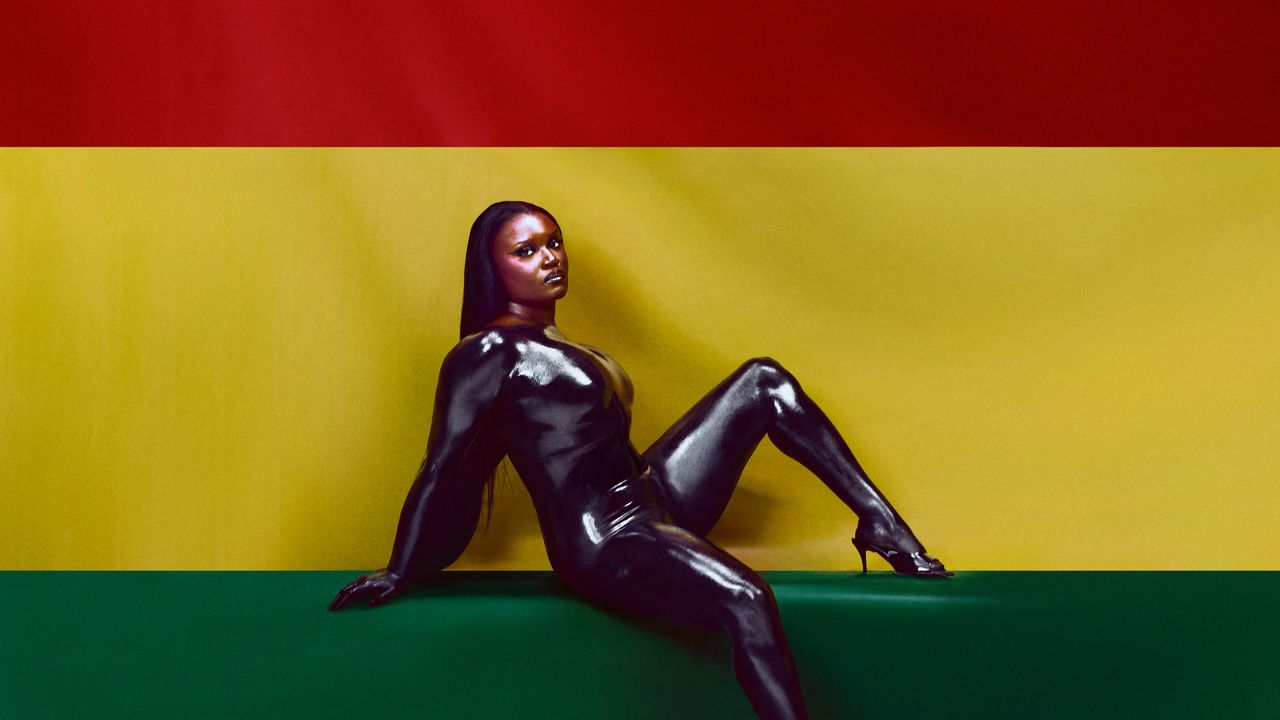In his memoir, The Chiffon Trenches, former Vogue editor-at-large André Leon Talley tells a story about Naomi Campbell. “[She] called me, from some foreign city,” he writes, “on one of 10 ubiquitous cell phones she keeps in a Hefty zip-lock bag (a cell phone for each country is thrown in her carry-on, as well as a fresh bottle of Tabasco sauce).” This, to me, is the pinnacle of glamor: when the hustle, the grind, that births an icon becomes part of her legend.
Amaarae wants you to see her sweat. On her pan-Atlantic 2020 debut, The Angel You Don’t Know, the Accra, Atlanta, and New Jersey-raised singer twerked in the mirror and fantasized about buying her mom a Bentley. Fountain Baby took things global, blowing up her sound so that it might encompass a Japanese koto on one track and a sample of Clipse’s “Wamp Wamp (What It Do)” the next. “Angels in Tibet” had Amaarae eyeing up a girl at the club, trying to distinguish diamonds from droplets; now, she’s at the center of the rave, strobe-sliced into slow motion, stress-testing her body and flows against abrasive Eurodance and catwalk techno. Black Star is the record you make when you can finally afford the best drugs and the suite with a view, lavish them on a lover (or several), and begin to ask yourself: Is this all there is?
Following the release of Fountain Baby, Amaarae visited the nightlife scenes of Miami, Los Angeles, and São Paulo, studied up on Chicago house and Detroit ghettotech, and dove deeper into Ghana’s regional microgenres. Unbeholden to any one place, Black Star carves out its own sovereign territory on the dancefloor; call it “CzechSlovakAtlanta,” as declared by Bree Runway amid the laser-pistol crossfire of “Starkilla.” Amaarae’s ambition—a survey of the Black diaspora that uniformly bangs—aligns with and maybe even surpasses that of Beyoncé’s Renaissance, but her approach is far less didactic. Laid out over Jersey club-meets-highlife single “Girlie-Pop!,” “switching genres till we make it pop” is the album’s only credo.
To that end, Black Star is almost radically populist. DJ Starkillers, a staple of the circuit-party scene, and Charlie Wilson, who fronted R&B radio standbys the Gap Band for decades, number among the guests. “Fineshyt,” the skeletal echo of a peak-era Pitbull song, cribs from Nightcrawlers’ “Push the Feeling On (The Dub of Doom)” and Swedish House Mafia. “She’s my new sexy machine/My sexy sex machine,” Amaarae croons, making a strong claim to the Ms. Worldwide title. To obtain the finest hooks, she knows, requires a bit of grand larceny. PinkPantheress duet “Kiss Me Thru the Phone pt 2” samples “The Thong Song,” positioning itself as a spiritual sequel to Soulja Boy’s ever more prescient OG; “Starkilla” interpolates Kelis’ “Milkshake”; and on the El Guincho coproduction “She Is My Drug,” Amaarae ponders her faith in “love off the drugs”—to the tune of Cher’s “Believe.”
